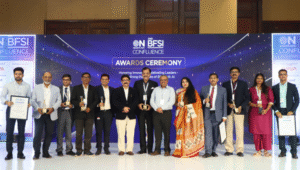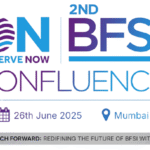Content Marketing Marking the Crucial Edge in Today’s Digital Noise

In today’s digitally saturated world, communication has often devolved into a cacophony rather than meaningful dialogue with consumers. The digital landscape has transformed so drastically over the past 50 years that it’s almost unrecognizable from its early days. Amidst this noise, content marketing has emerged as a crucial tool for businesses aiming to reach decision-makers, engage audiences, and foster customer loyalty. High-quality content marketing not only enhances brand perception but also significantly impacts the bottom line.
According to a report by HubSpot, 82% of marketers are heavily investing in content marketing, while 10% are not utilizing it, and 8% are unsure of their organization’s use of it. In 2023, 76% of marketers reported that content marketing contributed to demand and lead generation, a 9% increase from the previous year. Additionally, 63% highlighted its role in nurturing audiences, customers, and leads, and 50% acknowledged its effectiveness in fostering loyalty among existing clients.
Content marketing plays a vital role in educating audiences. In a world where digital channels dominate information dissemination, businesses that share valuable content on their websites gain a significant edge over those that don’t. Content marketing allows B2B marketers to educate audiences not only about their products and services but also on relevant industry insights. Consistently delivering timely and relevant content helps build trust and positions your brand as a reliable source of information. Siddharth Mala, Correspondent, ObserveNow interacted with industry professionals to gain more insights on the matter.
While shedding light on the importance of content marketing Sandipan Bhattacharjee, Head of Marketing, ESDS Software Solution Limited stated “Content marketing builds Trust and long-term relationships between B2B companies and their clients by constantly providing values in terms of informative and educational content ( articles, Knowledge bases, videos, authored articles, media interviews, etc) that establish organizations as thought leaders in that space, addressing the challenges and pain points that clients are facing and offering probable solutions that garner a sense of partnership & relationships Moreover, the use of UGC ( user-generated content) like testimonials, case studies helps to build the Trust.”
Adding to the same Shreya Bhatnagar, Enterprise Field & Partner Marketing Manager [APAC], Broadcom underscored “Content Marketing is a key channel to enhance our messaging by virtue of prevailing use cases in-picture. Positioning the product’s capability as a solution to a mutual problem statement through personalized Content Marketing is a game changer: it is then all about better targeting. You have got to make sure that the right target audience is consuming your content.”
Building brand awareness is another critical aspect of content marketing. Effective content marketing reaches consumers at all stages of the customer journey. This involves creating content that caters to new visitors, those familiar with the brand, and ready-to-convert customers. By covering a broad spectrum of content needs, businesses can increase their visibility and appeal to a diverse audience, enhancing their brand awareness through improved SEO rankings, social shares, and online advertising.
Authentic content marketing helps businesses strengthen relationships with existing customers and attract new prospects. In an era where consumers are bombarded with messages from multiple brands, creating personable content can strengthen relationships, fostering loyalty and driving sales and conversions. By communicating genuinely and effectively, businesses can resonate more deeply with their target audiences.
When commenting on How can B2B companies measure the effectiveness and ROI of their content marketing efforts Shreya highlighted “I would give qualifier-marking the highest score, where I get an insight into the customer’s environment through syndicated form fills that contain smartly curated questions on customer’s current requirement, and future roadmap into tech-transformation initiatives.”
Moreover, the return on investment (ROI) for content marketing can be substantial. High-quality content can generate long-term value, continuing to attract and convert leads well after its initial publication. This ongoing engagement can lead to significant cost savings compared to traditional marketing methods, as well as higher lifetime value for customers acquired through content marketing. Businesses that track metrics such as website traffic, lead quality, conversion rates, and customer retention can clearly see the financial benefits of their content marketing efforts.
“B2B companies can measure the effectiveness and ROI of their content marketing efforts in various ways:– 1. Websites Traffic ( Organic /Referral/Social ) and session duration/page views 2. Lead generation through form submission on the websites/Landing pages /Search Ad campaigns 3. Social Media engagement ratio (( Total sum of Like+Share+comment) / Impression) 4 Keyword ranking in different Search platforms ( Google/Bing/Yandex/Baidu, etc) through off-page submission activities. B2B organizations also use analytics such as Google Analytics/Adobe Analytics to track website visitor patterns and engagement” concluded Sandipan.
As the digital landscape continues to evolve, leveraging content marketing is essential for B2B businesses looking to educate, engage, and convert their audiences. By implementing a robust content strategy, companies can build brand awareness, strengthen customer relationships, enhance credibility, and ultimately drive growth and success. The significant ROI from content marketing further underscores its value, making it a wise investment for businesses aiming for sustainable growth.
















